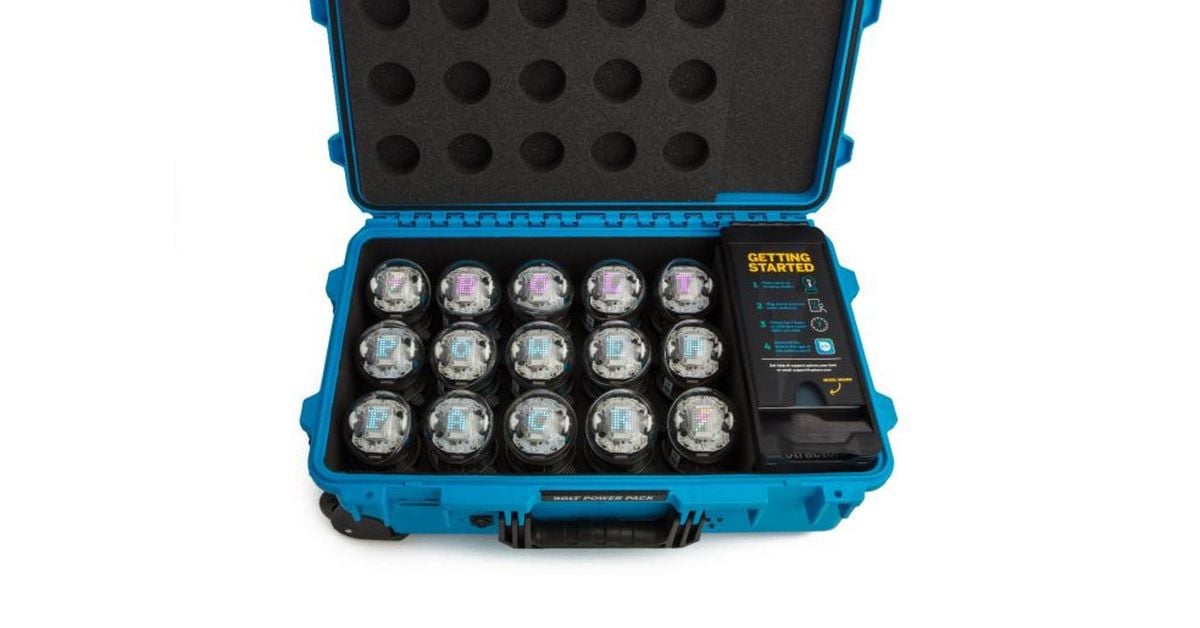I miss the glory days of .99 cent apps. :(
Yeah, I’m old school: I wanna buy my software application, not rent it.
True. Even buying things on say the playstore, App store, steam or any platform really is a ticking time bomb. If the platform disappears or the companies running them have a change in management, there’s no guarantee.
At least with physical copies, our software is with us regardless of what happens to the companies behind them.
Also miss the days when you could remove ads from an app for lifetime by paying 12.99 instead of 1.99 every month.
Now it is 9.99 subscription PER WEEK for shitty app that use to cost 0.99 to buy
Here is the content, for those who don’t want to click
==========================================================
`Sphero’s founders just wanted to make robots. In 2010, Adam Wilson and Ian Bernstein asked investors for money to build a business around their clever phone-controlled robotic ball. But in some cases, investors wanted to know what more the business could offer: after they sold one robot to a customer, what came next?
The answer was one that many hardware companies have turned to: a recurring revenue model that allows them to rely on customers paying every month or year. To find that model, Sphero experimented with turning the robot into a gaming device, but later, it decided to go all in on its developer tools and make the robots into coding toys that would appeal to schools. At that point, the team pivoted to education as a main focus, and with it, came customers that could pay year after year.
“We created a new product that was very tailored to that group [of educators],” Wilson says. “But then the business model changes a little bit because once you make a 30-pack [of robots], schools have a reoccurring budget, right?”
Sphero is in 40,000 schools
The team had to find a way to make sure their robots represented the best way for a school to spend money year after year. It made software for iOS, Android, and Chrome OS that walked teachers and students through the process of using a Sphero product. Teachers can use the product to teach concepts like perimeter, shape, and variables. Its product complies with state teaching standards, and right now, Sphero is in 40,000 schools around the world.
“We could now do reoccurring revenue in a way that made sense rather than selling one ball to one person that who knows if they’ll buy another thing,” Wilson says.
Hardware is a notoriously difficult business. Startups often shutter even after raising hundreds of millions of dollars. However, some of the companies that do survive are finding a path forward with recurring revenue in various forms. This is even true for large companies. Apple is focusing on monthly services because iPhone sales aren’t growing, and lots of companies, like Keurig and Nespresso, create gadgets that rely on pods that have to continually be repurchased. Meanwhile, startups like Peloton require a content subscription to get the most out of their hardware.
Education is a unique market, and Sphero has created specific products and offerings to appeal specifically to schools. The team built a custom educators product that comes in a multiunit protective case and has a longer battery life. It also developed a new way of selling the products, including a plan that lets teachers call Sphero to replace a unit at any time. The company also launched a program this year that involves one-on-one tutoring with the Sphero. Eventually, Wilson says, the team will start charging for more premium content, too, like lesson plans, and they will share revenue with the teacher who made it.
One of Sphero’s education products. One of Sphero’s education products. Image: Sphero “You can actually be a superstar teacher [who] could make a whole secondary living building content for us in the future,” Wilson says.
All in all, those 40,000 schools have changed Sphero’s conversations with investors and made it an attractive sell.
“It’s sort of like saying we have 40,000 customers who are going to be buying [a product] next year and every other year, so that is a great number,” he says. “When we first started, we got laughed out of a lot of rooms. It was none of this other cool stuff, no education, just, we want to make a robot ball, and you connect it to an iPhone, and that’s the product. A lot of people [were like], ‘what is that? I don’t get it.’”
Recurring revenue models can empower hardware companies and make them more lucrative to investors, and, in Sphero’s case, it really sustains the business.`




